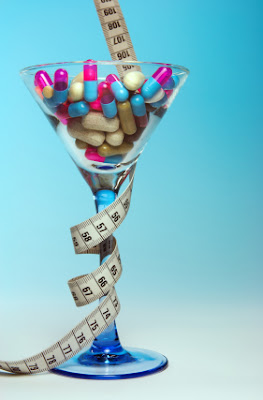 In the year 2048, all Americans will be overweight or obese. This is the prediction, based on current trends, in an article by published in the journal Obesity. By 2030 86.3% of Americans will be overweight. The costs of “globesity” are particularly disturbing, given the current economic crisis—predicted obesity health care costs of 860.7–956.9 billion US dollars are expected by 2030, which is 16–18% of total US health-care costs.
In the year 2048, all Americans will be overweight or obese. This is the prediction, based on current trends, in an article by published in the journal Obesity. By 2030 86.3% of Americans will be overweight. The costs of “globesity” are particularly disturbing, given the current economic crisis—predicted obesity health care costs of 860.7–956.9 billion US dollars are expected by 2030, which is 16–18% of total US health-care costs.If a weight loss method works it should not be tossed aside based on media ramblings and poor distribution and dosing methods. The combination of ephedrine and caffeine purposes of weight loss has a bad reputation. As noted by the NY Times in 1999, ephedrine has been used as an asthma medication since the 1920s, so why is the drug suddenly so controversial? Most likely, health care professionals are disturbed by the off-label use of ephedrine and ephedra, in combination with caffeine, for weight loss in combination. Is weight loss combo effective—is it safe—how does it compare to weight loss drug that are currently approved by the FDA?
Is Ephedrine Effective?
As noted in a meta-analysis published in the Journal of the American Medical Association (JAMA), the combination of simply ephedrine and caffeine, without any other herbal components leads of a monthly weight loss 1 kilogram over placebo, this is about 2.2 pounds. The longest running ephredra trial, conducted by , was 6 months long, and revealed a weight loss of about 11.6 pounds for obese people taking the treatment, which was about 6 pounds more weight loss than participants who took a placebo. This level of weight loss sits comfortably within the 10 to 15 pound weight range recommended by theto help lower blood sugar, blood pressure, and blood fat levels.
Is Ephedrine Safe?
Ephedrine is a drug; ephedra is a bioactive herb. All drugs have side effects and ephedrine does as well. As detailed by the JAMA article, use of ephedrine and caffeine for weight loss may experience psychiatric, gastrointestinal symptoms, and heart palpitations. Interestingly, a meta-analysis of the drug sibutramine, , reveals the same history of side effects for this weight loss tool. This is because both ephedrine and sibutramine work by activating the “fight or flight” response. Furthermore, cases of psychosis or death in ephedra users are associated with abuse and overdose of the drug or pre-existing heart and blood pressure problems in case reports. These side effects are evidence that a doctor should prescribe appropriate doses of the drug combination; research provides support that intelligent and appropriately dosed ephedrine and caffeine may be useful for weight loss. Ephedra is safest when it is dosed by a medical professional and side effects are regularly monitored, just like any other drug!
How Does Ephedrine Compare to Other Weight Loss Drugs?
Though permanent weight loss will NEVER be achieved without a healthy diet and consistent exercise, our society values the use of medicines for obesity intervention.
Sibutrimine and Orlistat are two weight loss drugs currently approved by the FDA. According to Arterburn above, on average, sibutramine resulted in weight loss of about 7 pounds in 3 month trials and 10 pounds after one year of taking the medication. A review conducted by Padwa et al showed that taking orlistat for a year resulted in about a 6 pound increase in weight loss over placebo. Based recent, large reviews of the weight loss research, the effectiveness of the ephedrine-caffeine combination is comparable to weight loss treatments currently approved by the FDA.
America, we’ve got bigger problems. In 2000, there were 435,000 tobacco-related deaths, 400,000 deaths related to poor diet and physical inactivity, and 85,000 deaths due to alcohol consumption The number of deaths related to ephedrine over the entire history of its use are minimal when compared to major sources of mortality, yet the “the dangers” of ephedrine are so widely proclaimed. Undoubtedly, watching six hours of TV a day and snacking on a donut present a far more urgent danger. Given the similar effectiveness and safety of the ephedrine-caffeine combination and currently approved weight loss medicines, is it appropriate for the media and some medical professionals to demonize ephedra? It would do the country a greater service if the FDA would ban tobacco and give lame supplement-blasting a rest.
In conclusion a quote
“The benefits of caffeine and ephedrine in treating obesity appear to outweigh the small associated risks. Restriction of dietary herbal supplements containing caffeine and ephedrine, often with other ingredients, should be based on controlled clinical trials of these products.”


 06:42
06:42
 Astral
Astral
 Posted in
Posted in





0 comments:
Post a Comment